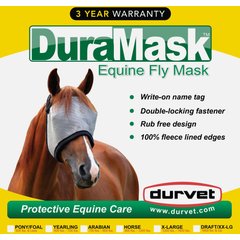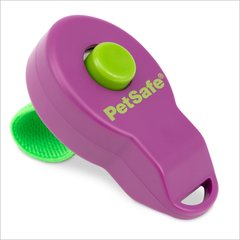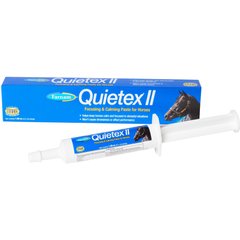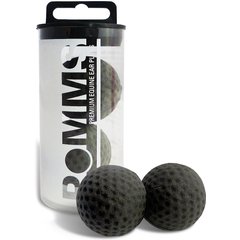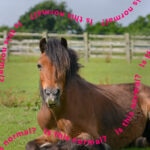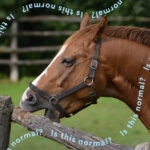My Horse Is Easily Spooked—Is This Normal?
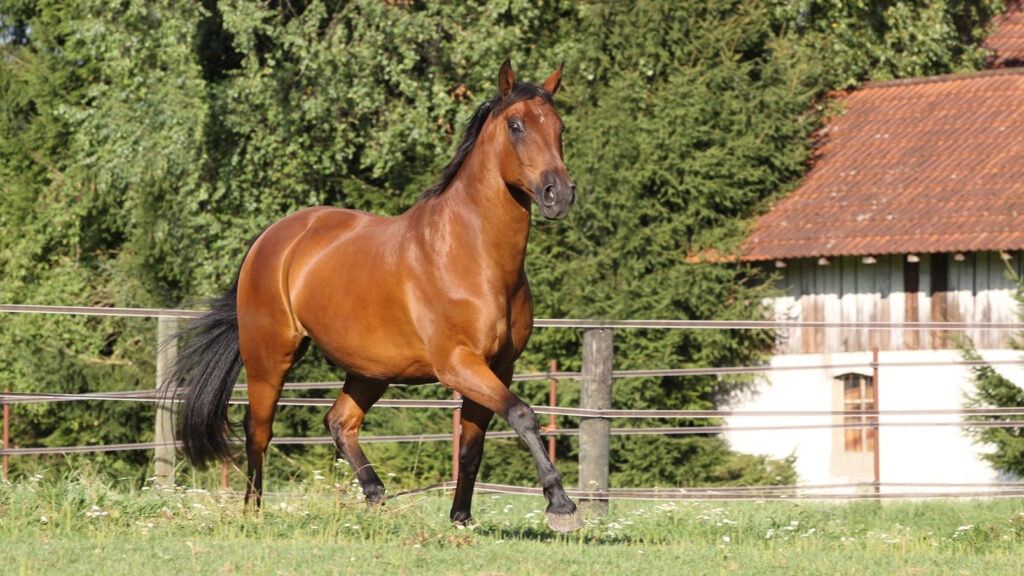
Photo by Petra Eckerl/Adobe Stock
Q: My new, 6-year-old gelding has big, dramatic reactions to things my older horse hardly notices. It seems like any little change in the arena triggers a big spook. Is this normal?
A: Maybe. Some horses spook more readily than others, due to their genetic makeup, age, and/or level of training. However, excessive reactivity that doesn’t change with training or desensitization could be a sign of a health issue.
To learn more about fear in horses, we spoke with Katherine Houpt, VMD, PhD, professor emeritus of behavior medicine at Cornell University, in Ithaca, New York, and Natalie Lord, DVM, a large and small animal veterinarian at Four Paws – Cuatro Patas, in Austin, Texas.
Key Takeaways
- As prey animals, all horses evolved to flee first and ask questions later.
- Horses selectively bred for sports requiring keen senses and high energy levels may be more easily startled than those bred for calmer activities.
- Excessive fear that either doesn’t improve or gets worse with training could be a sign of a medical problem.
How To Tell if Your Horse Is Scared
Understanding your horse’s body language can help you differentiate fear from other equine emotions. The most common expression of fear in horses is a behavior known as “spooking,” usually in response to an unfamiliar sight or sound.
“A spook is a short-lived reaction where the horse moves before really investigating things. It varies by age, breed, and individual,” says Dr. Houpt.
If you’re curious how a horse responds to novelty, ask a qualified trainer or behavior professional to assess this safely. Don’t intentionally startle a horse.
Chronic fear may show up differently. For example, some horses may communicate their fear by shutting down and refusing to interact with humans. Some fearful horses even behave aggressively.
Why Is My Horse Easily Spooked?
Fear Is How Wild Horses Survive
Your horse’s habit of teleporting across the arena whenever a leaf blows their way isn’t meant to upset you. Their instincts say, “Move first, think later.” Where you see a harmless bush, they see a predator’s hiding spot.
They’re Not Spooky—They’re Just Alert
Instead of calling your horse “spooky” or “timid,” Dr. Lord suggests reframing it: “Are they more reactive because we want them hot and flighty for a reason? Some horses are bred to be more reactive and visually attentive, meaning they track more and are quick on their feet. Cutting horses just by a flick of an ear will chase a cow and know where it’s going.”
They Lack Human Socialization
Horses with limited human interaction often view common surroundings as threats. Feral horses—like not-yet-gentled Mustangs—are obvious examples. Young horses with little early handling also tend to show a stronger flight response, according to a 2008 study of Thoroughbred foals in Japan.
They Remember Bad Experiences
Like us, horses are great at associative learning. If a firecracker goes off while you’re picking up your horse’s left rear hoof, they may become anxious every time you reach for that same hoof.
Your Anxiety Could Be the Issue
A 2020 study confirmed what horse people have long believed: Horses can smell fear. Ask a more confident rider to work with your skittish horse and observe. If things go better, it might be time to focus on your own confidence.
It Could Be a Medical Issue
If your horse’s fearfulness seems excessive for their breed, background, or training level, it’s time to call the vet. Dr. Lord says vision problems, neurological issues, pain, or even mineral deficiencies can all make horses seem “scared of everything.”
Common Fears of Horses
A horse can be afraid of just about anything. But, if you’d like to desensitize your horse to spooky stimuli, here are a few of the most common culprits:
- Rustling bushes
- Crossing water
- Other species, such as cows or pigs
- Sudden, loud noises
- Umbrellas/parasols
- Plastic bags blowing in the wind
- People pushing strollers
- People wearing large hats
- Changes to a familiar place
- Barking/lunging dogs
- Flapping flags overhead
- Balloons
- A sudden change in footing
- Bicycles
- Motorcycles
- Flapping tarps
- The sound of their hooves crossing a bridge
- Separation from the herd (causes lasting anxiety, not brief spooking)
- New objects added to a familiar place (e.g., riding arena)
- People acting erratically (e.g., flapping arms, yelling)
How To Calm a Scared Horse
A startle response to unexpected sights and sounds is natural in horses and shouldn’t be punished.
If your horse is living in chronic fear or is so easily startled that their training can’t progress, you may need to take further steps to help them feel more confident.
Get a Professional Opinion
Dr. Lord recommends first asking a qualified equine trainer or behaviorist you trust whether your horse’s fear is typical. “If you take a step back and observe them and everyone’s saying ‘Something ain’t right,’” she says, “it’s time for an exam.”
Call the Vet
Show your vet videos of the behavior that concerns you. Start with an eye exam, says Dr. Lord, especially if your horse isn’t making progress with slow, step-by-step training.
Corpora nigra cysts (cysts on the eye’s natural granules) is an example of an eye condition that can contribute to spookiness, but surgery is available and often effective when appropriate. Protect your horse’s eyes with a UV fly mask during turnout, like the Durvet DuraMask, making sure of proper fit and visibility.
Recommended Product
If the eyes check out, your vet may suggest blood work or a neurological exam. Brain issues are rare, but CT or MRI can uncover hidden problems like cysts or tumors.
Try Desensitization and Counterconditioning
If you know the trigger, introduce it gradually (desensitization) and pair it with rewards (counterconditioning).
For example, if your horse fears water, start by rewarding one hoof in, then progress to two. Within days, they may cross water confidently.
Use a clicker, regular feed, or high-value treats, like Saddle Snacks, to reward progress.
Recommended Products
Work on What Happens Before the Spook
Spooking often stems from subtle triggers. To sharpen your observation skills, Dr. Lord recommends Warwick Schiller’s video library, which features real horses and real training.
Consider Supplements
Supplements can help, even during the training process. Most supplements contain magnesium and B vitamins to support the nervous system.
Ask your vet before trying calming products. Options include ANIMED Via Calm, Formula 707 Calming Pellets, and Farnam Quietex II for stressful events.
Recommended Products
Always check your sport’s banned substances list before using calming aids.
Consider Your Role
Most riders have experienced fear. Even Dr. Houpt admits she’s shopping for a “spookless horse.” If your fear is impacting your handling, take a step back and work on emotional resilience.
Try Earplugs
For horses with sensitive hearing, equine earplugs, like Equine Healthcare International Pomms, can reduce distractions during shows or fireworks. Don’t use them 24/7—just when needed, and check your discipline’s rules before competition.
Recommended Product
FAQs About Scared Horses
How can I tell if my horse is scared or in pain?
Fear is usually short-lived and tied to a specific trigger—like a rustling bush or sudden noise. You’ll often see tension in their body and face, with ears locked on the scary thing. Pain tends to linger and shows up in more subtle ways. Watch for the 24 behaviors in the ridden horse as a guide.
Are some horses naturally more anxious?
Yes. Some horses are just wired to be more reactive, which can actually be helpful in certain disciplines. But if your horse seems constantly anxious with no improvement, it’s worth bringing up with your vet or an equine behaviorist.
Will my spooky horse ever chill out?
Most horses get less spooky with consistent handling and age. That said, personality matters—a sharp, sensitive Arabian won’t morph into a chill Percheron, but they can become more confident with time and training.
